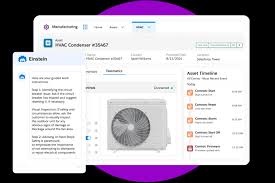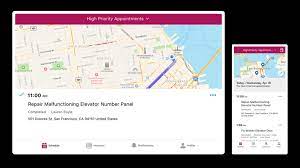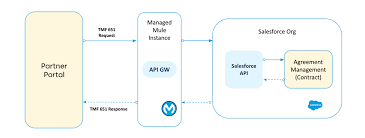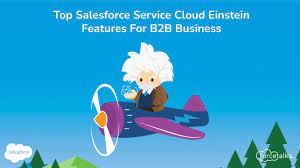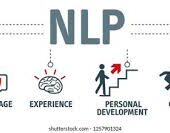Cloud-Based Housing Repairs with Salesforce
Bernicia Leads the Way in Cloud-Based Housing Repairs with Salesforce Bernicia has become the first housing association in the UK to deliver end-to-end repairs services through Salesforce’s cloud-based, nonprofit solution—setting a new industry benchmark for streamlined, automated housing repairs. Transforming Repairs with Salesforce Field Services All electrical repairs at tenants’ homes are now managed through Salesforce Field Services, enhancing the customer experience with seamless, automated processes. By this summer, all responsive repairs will transition into the system, delivering key benefits such as: A Customer-Centric Digital Transformation In 2023, Bernicia reinforced its commitment to tenants by launching a multi-year cultural development program, supported by a £4 million investment in world-class technology. By listening to customer feedback and leveraging data-driven insights, Bernicia has aligned its new digital repairs service with tenant expectations and evolving habits. Andrea Malcolm, Deputy Chief Executive at Bernicia and project sponsor, stated: “The introduction of Field Services marks a major milestone in our journey to customer service excellence. The dedication and expertise of our team have been outstanding, creating an incredible momentum across the business. We’re excited to see the real difference this will make for both customers and colleagues.” Jude Comber, Account Executive at Salesforce Nonprofits, praised the project team, saying: “The level of skill and attention to detail in this project is outstanding. Bernicia’s customer-first approach is a model for how to successfully implement a digital transformation.” Strategic Collaboration with Alscient Achieving this milestone was made possible through Bernicia’s partnership with Alscient, a multi-cloud specialist. Their expertise in Salesforce integration and digital transformation played a key role in designing and implementing the Field Services solution. Salesforce: A Game-Changer for Housing Associations Salesforce offers housing associations a single, integrated platform to streamline operations, enhance tenant relationships, and eliminate inefficiencies caused by data silos. By embracing cloud-based, automated solutions, housing providers can transform service delivery and drive long-term tenant satisfaction. Like Related Posts Salesforce OEM AppExchange Expanding its reach beyond CRM, Salesforce.com has launched a new service called AppExchange OEM Edition, aimed at non-CRM service providers. Read more The Salesforce Story In Marc Benioff’s own words How did salesforce.com grow from a start up in a rented apartment into the world’s Read more Salesforce Jigsaw Salesforce.com, a prominent figure in cloud computing, has finalized a deal to acquire Jigsaw, a wiki-style business contact database, for Read more Service Cloud with AI-Driven Intelligence Salesforce Enhances Service Cloud with AI-Driven Intelligence Engine Data science and analytics are rapidly becoming standard features in enterprise applications, Read more



